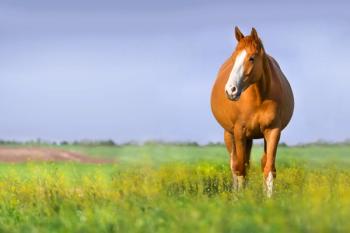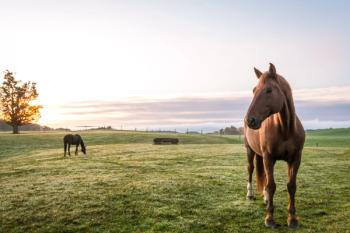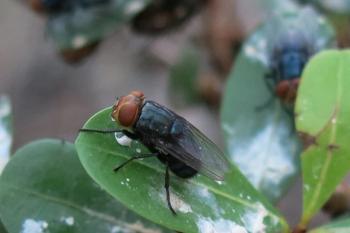
Minnesota legalizes lay dentistry
ST. PAUL, MINN. — Lay people are permitted to float equine teeth in Minnesota due to an amendment tied to the state's budget bill that passed prior to the July 4 recess.
ST. PAUL, MINN. — Lay people are permitted to float equine teeth in Minnesota due to an amendment tied to the state's budget bill that passed prior to the July 4 recess.
The Minnesota Practice Act was changed to allow certain people to practice under indirect supervision of a veterinarian instead of direct supervision as previously necessary. But non-veterinarians must obtain the signature of a practicing veterinarian that certifies indirect supervision and culpability.
Veterinarian demographics, practice types
"Basically the bill, in a broad sense, doesn't change a whole lot. It does allow people with years of experience who earn at least $5,000 per year to float teeth, and it's my belief that it only applies to one person in our state," says Sharon Vangsness, executive director of the Minnesota Veterinary Medical Association (MVMA), which opposed the change. "It's my understanding that what passed was that any lay person interested in doing teeth floating had to take the International Association of Equine Dentistry program to do it, and any then any lay person also needs the signing-off of a large-animal veterinarian."
Although the measure won't alter the way equine doctors practice, per se, the MVMA combatted the proposal because it didn't want to open the practice act, as well as Pandora's box for other procedures.
"It doesn't change things a whole lot currently, but we, like other state VMAs, are concerned about what's next," Vangsness says. "What other kinds of attacks, if you will, will be on procedures that veterinarians historically have done? Chiropractors and massage therapists and other holistic things that are sneaking into other states probably will be here as well. We were hoping not to start that process."
The state's licensing board is charged with enforcing the measure, but Vangsness says the board historically struggles to enforce equine dentistry due to revenue shortfalls, and the lack of critical mass practicing equine dentistry makes it a low priority for enforcement.
The American Association of Equine Practitioners (AAEP) has been ramping up its continuing education in dentistry to help meet the demand for practitioners in underserved areas, says AAEP President Dr. Scott Palmer, owner of New Jersey Equine Clinic. But he says declassifying procedures has the possibility to hurt consumers, patients and the reputations of veterinarians that might opt to sign off for lay practitioners.
"The AAEP policy is that we believe that equine dentistry is a veterinary procedure. Anything that requires sedation, tranquilization, anesthesia or any invasive procedures should be done by a licensed veterinarian," Palmer says. "We do recognize that floating teeth — rasping of molars and removing caps — can be done (by non veterinarians) provided that there is a good client-patient relationship, which means that the veterinarian has examined the horse and is familiar with the horse; then a certified veterinary technician who is employed by the veterinarian can go ahead and do the work.
"In a hospital situation, we certainly have technicians draw blood, take X-rays and do simple procedures every day in our hospital, but I'm right here to take care of any problems. If someone is out on the road and has a problem, then I can't just pick up and go to take care of something, so that would make me nervous to sign something like that."
South Carolina recently thwarted an attempt to open its practice act to insert language that would have made licensing board hearings public, and Florida currently is battling to keep its practice act closed.
"It is a difficult challenge to try to sort out which procedures should be done by veterinarians and which procedures can be done by laymen," Palmer says. "As veterinarians, our view is that we are trained uniquely in the anatomy, physiology and medical procedures that are important in taking care of these animals, and we feel that there is some risk to the public if non-trained individuals who don't have that kind of training go ahead and perform these procedures."
Newsletter
From exam room tips to practice management insights, get trusted veterinary news delivered straight to your inbox—subscribe to dvm360.




